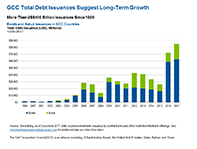
GCC nations, Islamic debt assets to receive billions as region diversifies from oil

© 2025 Azzad Asset Management. All Rights Reserved
You are about to leave the Azzad website and enter a third-party website. We are not responsible for and cannot guarantee the accuracy of any information on a third-party website.
Click the link above to continue or CANCEL